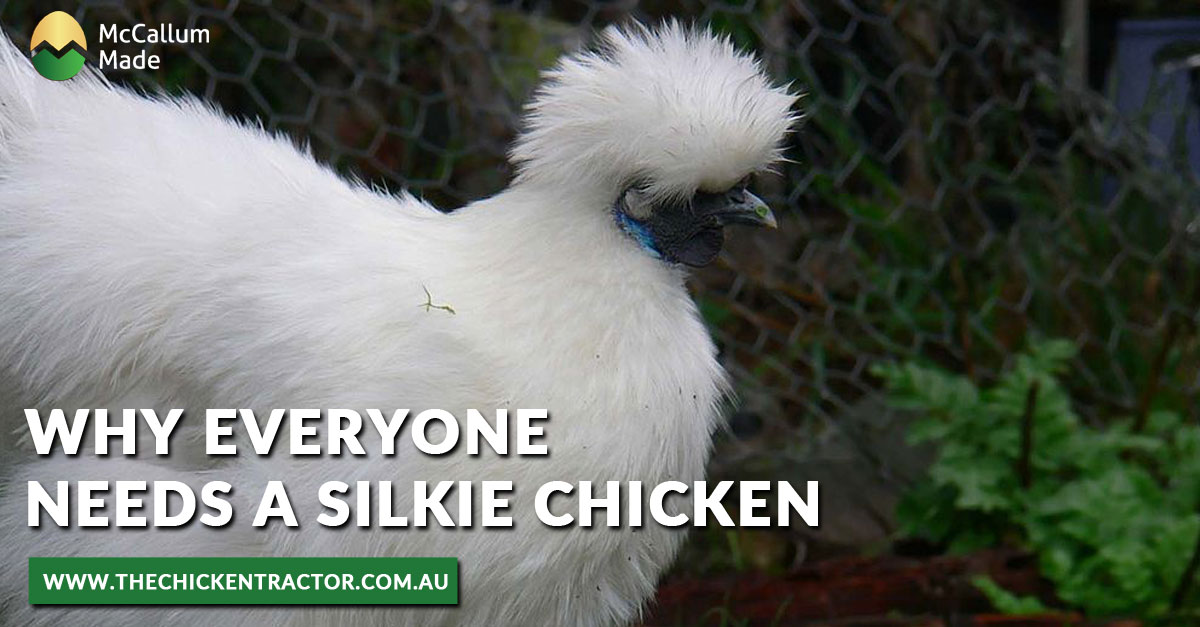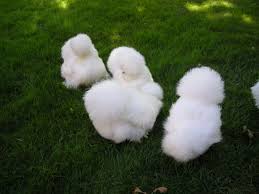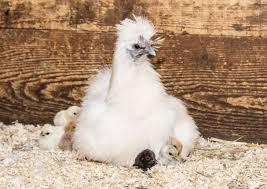Why Everyone Needs a Silkie Chicken

The silkie chicken is a unique and highly desirable addition to any flock. She gets her name from her soft, poofy plumage which is said to feel just like silk. While the silkie chicken likely originated in Asia, this poultry breed has spread all over the world. You can expect to see them at poultry shows, exhibitions and on many family farms.
Silkie Chicken Facts
The silkie chicken is special in a number of ways. In terms of strictly physical attributes, here is what makes them so distinctive:
- Silken Feathers – The soft, downy feathers of a silkie chicken may be white, black, grey or golden in color and are obvious even on very young birds.
- Black Skin and Bones – Even white silkie chickens have black skin, black bones and dark grey or bluish flesh. While they are a small bantam breed, this odd coloration gives them a specialty status as a meat bird.
- Feathered Legs – Silkies often look like they are wearing socks or fluffy slippers thanks to the heavy feathering of their feet and legs.
- Five Toes – Most chicken breeds only have four.
- Colorful Jewelry – A silkie’s earloabs are usually a deep blue, while the wattles and comb are a rich purple.
- Small Bantam Birds – The standard silkie chicken weighs three to four pounds. In the states they are often only 18 ounces.

Image courtesy of photobucket.com
It’s not hard to see why many people want a few silkies around the farm. They are beautiful birds. But their value is more than skin deep.
Silkie Egg Production
Silkie chicken eggs are light brown and delicious. They are smaller than large or jumbo store-bought eggs. When baking with silkie eggs you’ll need to use two eggs in place of each large egg. You can expect 100-120 eggs per year from each silkie hen.
A Silkie Chicken Mother
A silkie chicken wants nothing more than to be a mother, and she’ll accept any eggs you offer. If you want to raise chickens naturally, without and incubator or brooder, you’ll need a broody hen who is also a good mother. Silkie hens are exceptional. In fact, their broodiness is often seen as a fault because a broody hen stops laying and thus produces fewer eggs. You may not want a whole flock of motherly birds, but a silkie chicken or two can provide lots of baby chicks. They will happily raise their brood with little help from you. Even silkie roosters are good with chicks.

Image courtesy of huffingtonpost.com
The Downside to Raising Silkie Chickens
The soft and startling feathers of a silkie chicken make nasty weather difficult for her to tolerate. While beautiful, their feathers are not very insulating, so they do poorly in cold weather. Mud and snow stick to them and can make a fast mess of your lovely birds. Silkie chickens should be kept in clean, dry environments. They have even been raised successfully inside apartments!
Silkies have lovely personalities. They are among the friendliest of all the chicken breeds. Yet this softness often leads to their being victims of bullying in the coop. If you have other breeds or aggressive birds you’ll need to keep your silkies apart.
Silkie Chickens for Sale
Are you ready to add a silkie chicken to your flock? You can find female silkie chicks for sale from a number of breeders. Silkie Coop frequently offers beautiful lavender silkies chickens for sale.


